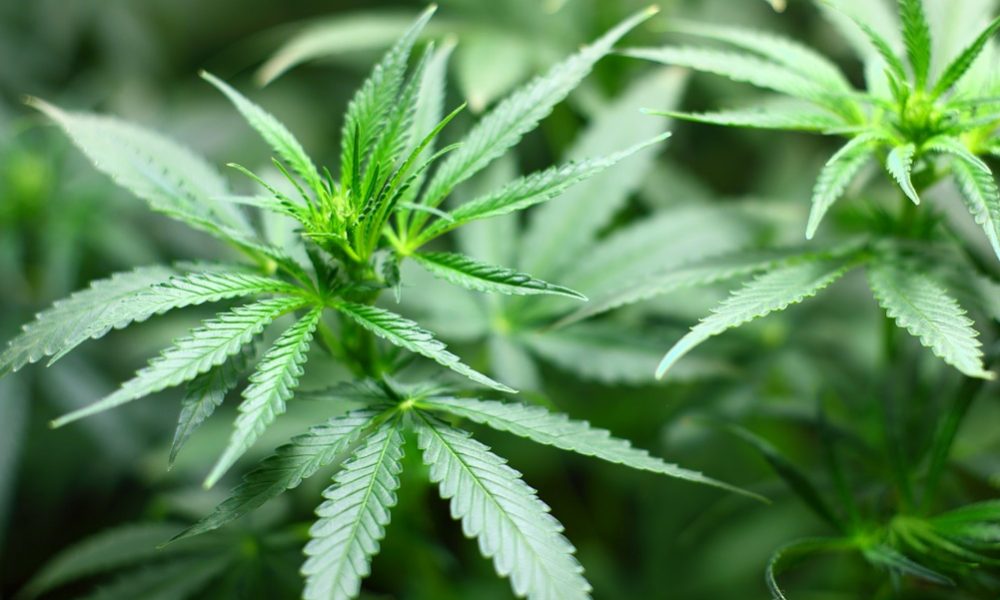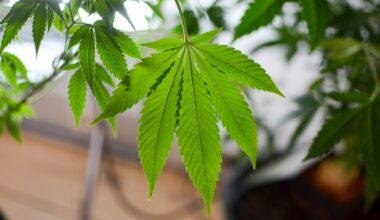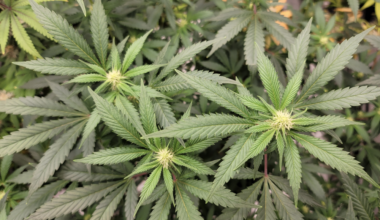The governor of Louisiana has signed a bill to provide workplace protections for most state employees who are registered medical marijuana patients.
The legislation from Rep. Mandie Landry (D) is one of roughly a dozen cannabis measures that Gov. John Bel Edwards (D) has signed in recent days, but it’s one that advocates have been especially passionate about.
It stipulates that no state employer “shall subject an employee or prospective employee to negative employment consequences” just because they test positive for THC as long as they’re a registered medical cannabis patient who received a marijuana recommendation from a licensed physician.
There are exceptions to the protections, however. Employers could still penalize workers who are found to be intoxicated from marijuana on the job, for example.
Further, workers could still face adverse employment actions for testing positive for marijuana metabolites if their jobs require them to operate a vehicle or if they work in any of the following professions: “emergency medical services, law enforcement, public safety officials, any state employee of the horse racing commission, and firefighter services.”
The bill cleared the House and Senate in recent weeks with strong margins before being transmitted to the governor’s desk.
Landry told Marijuana Moment in a phone interview on Thursday that providing medical cannabis workplace protections for state employees is just one of the first steps toward broader reform. The sponsor supports adult-use legalization, but she recognizes that incremental reforms may be the most practical way forward in the short-term.
And that includes potentially extending the new protections for state employees to cover workers in the private sector as well.
“I think we’ll be able to come up—at least with industries or different areas of employment—that we can expand it pretty easily,” Landry said. “We’ll be able to come up with ideas and legislation in terms of expanding these protections statewide.”
Part of the challenge, the legislator said, is the current lack of accurate testing for active impairment from marijuana. Without that, it will likely be more challenging to convince more conservative members to get on board with expanding the workplace protections for cannabis patients.
—
Marijuana Moment is tracking more than 1,500 cannabis, psychedelics and drug policy bills in state legislatures and Congress this year. Patreon supporters pledging at least $25/month get access to our interactive maps, charts and hearing calendar so they don’t miss any developments.![]()
Learn more about our marijuana bill tracker and become a supporter on Patreon to get access.
—
“State employees deserve the same access to medical cannabis that other residents of Louisiana have,” Kevin Caldwell, Southeast legislative manager of the Marijuana Policy Project, told Marijuana Moment. “They suffer from the same debilitating conditions and have the same concerns about side effects that certain pharmaceuticals have, including the risks associated with opiates.”
“This legislation only affects state employees, but we hope to see progression for all workers in the coming sessions including first responders,” he said. “Rep. Mandie Landry was tenacious in her leadership to get this vital piece of legislation through the process to the governor’s desk.”
Meanwhile, the governor announced last week that he signed a wide range of other cannabis proposals, including one key measure that would expand the number of medical dispensaries that can operate in the state and another to prevent police from searching people’s homes over the smell of cannabis.
While advocates would like to see the momentum over the past few years continue and eventually lead to an adult-use legalization system in the state, that has yet to come to fruition.
Nearly six in ten Louisiana voters support legalizing marijuana, according to a poll from the University of New Orleans that was released in April.
While legalization has yet to be enacted in the Pelican State, Edwards did sign a bill last year to decriminalize possession of up to 14 grams of cannabis by making it punishable by a $100 fine without jail time. That policy went into effect last August.
Rep. Larry Bagley (R) filed a bill this session to revise the state’s cannabis decriminalization law to make it so people under 18 could face incarceration over low-level possession that advanced, but wasn’t enacted.
Edwards also signed a bill last year to allow patients in the state’s medical cannabis program legally to smoke whole-plant marijuana flower.
The governor also previously said that he does think that Louisiana will inevitably legalize cannabis for adult use at some point, but he doesn’t believe it will happen before his term expires in 2024.
An effort in the legislature to pass a bill to legalize recreational cannabis stalled in the House last session after the chamber failed to pass a complementary measure on taxing adult-use marijuana.
Last year, Edwards also said that he had “great interest” in the legalization proposal, and he pledged to take a serious look at its various provisions.
In 2020, the Louisiana legislature significantly expanded the state’s medical marijuana program by passing a bill that allows physicians to recommend cannabis to patients for any debilitating condition that they deem fit instead of from the limited list of maladies that’s used under current law. The governor signed that into law.
A separate poll released last year similarly demonstrated strong voter support for marijuana legalization, even in conservative stronghold districts.
Two other previous polls—including one personally commissioned by a top Republican lawmaker—have found that a majority of voters are in favor of legalizing cannabis for adult use.
Medical Disclaimer:
The information provided in these blog posts is intended for general informational and educational purposes only. It is not a substitute for professional medical advice, diagnosis, or treatment. Always seek the advice of your physician or other qualified healthcare provider with any questions you may have regarding a medical condition. The use of any information provided in these blog posts is solely at your own risk. The authors and the website do not recommend or endorse any specific products, treatments, or procedures mentioned. Reliance on any information in these blog posts is solely at your own discretion.







